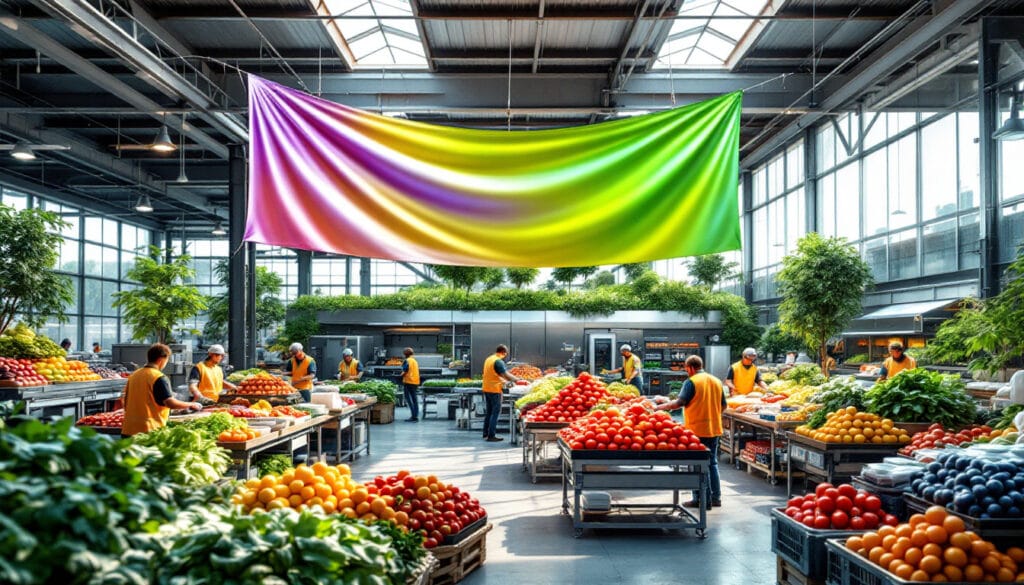PFAS are present in many everyday objects, exposing the population to unforeseen risks.
These chemical compounds, resistant to degradation, threaten our health and our environment.
In light of this issue, innovative initiatives are emerging to reduce their presence.
Consumers are becoming concerned about PFAS in common products, such as bread pans or waterproof textiles. Companies like Harry’s are exploring ceramic alternatives to replace Teflon, although the durability of these new materials raises questions. Furthermore, scientific advancements are revealing bacteria capable of degrading these persistent pollutants.
Table des matières
Togglewhat are PFAS and why are they problematic
PFAS (per- and polyfluoroalkyl substances) are a family of chemical compounds widely used in various everyday products due to their water-repelling and heat-resistant properties. They are found in textiles, cosmetics, non-stick coatings, and notably in bread pans. However, their high persistence in the environment poses serious problems.
These compounds are referred to as “forever chemicals” because they degrade extremely slowly, accumulating in soils, water, and living organisms. PFAS are also associated with harmful effects on human health, including cancer risks, endocrine disruptions, and other chronic diseases. The difficulty in eliminating these substances impacts not only public health but also the overall ecosystem.
In France, the growing awareness of PFAS has led to strict legislative initiatives aimed at reducing their use. The proposal by environmentalist deputy Nicolas Thierry aims to ban the manufacture and marketing of products containing PFAS starting in 2026, extending to all textiles by 2030. This legislation reflects a national commitment to protecting the environment and the health of citizens against the persistent threat of PFAS.
Several studies show that PFAS are found in our food, drinking water, and even in the air we breathe. Consequently, reducing their presence in consumer products has become a priority for many companies, including Harry’s.
PFAS in bread pans: a challenge for Harry’s
Harry’s, a leader in pre-packaged bread in France with a 30% market share, is particularly concerned about the presence of PFAS in its bread pans. These compounds were used for their non-stick properties, facilitating the production and handling of bakery products. However, in light of the health and environmental risks associated with PFAS, Harry’s has decided to completely rethink its manufacturing processes.
The transition to PFAS-free pans represents a major challenge for Harry’s. Indeed, available alternatives like Teflon are starting to be banned, forcing the company to seek innovative solutions. Moving to ceramic is one of the proposed solutions, promising a more ecological and safe alternative. However, this transition is not without compromise. Ceramic pans, although safer, have a shorter lifespan, estimated at six months compared to one year for Teflon. This reduced longevity necessitates adjustments in inventory management and production costs.
Harry’s is not just adopting a new technology. The company is also investing in research and development to optimize the performance of ceramic pans. The goal is to find a balance between durability, cost, and safety, to maintain product quality while complying with legislative and environmental requirements.
ceramic innovation: advantages and challenges
Harry’s innovation relies on the adoption of ceramic pans as an alternative to traditional coatings containing PFAS. This solution offers several significant advantages. First, ceramic is naturally non-stick without requiring harmful chemicals, thus reducing environmental impact and health risks. Additionally, it improves the quality of finished products by avoiding chemical contamination.
However, this innovation also presents challenges. The shorter lifespan of ceramic pans represents an additional cost for the company. Therefore, Harry’s must adapt its production processes to accommodate more frequent replacement of pans, which involves logistical and financial adjustments. Moreover, adopting new technologies requires staff training and revising production standards to ensure a smooth and efficient transition.
Despite these obstacles, Harry’s is determined to pursue this innovative path. The company sees the adoption of ceramics as an opportunity to stand out in the market by offering healthier and more environmentally friendly products. This initiative fits into a broader strategy of social and environmental responsibility, aiming to meet the growing expectations of consumers regarding sustainability and product safety.
impact of French legislation on Harry’s strategies
French legislation concerning PFAS has a direct impact on Harry’s production strategies. The law, initiated by environmentalist deputy Nicolas Thierry, prohibits the manufacture, import, export, and marketing of products containing PFAS in several sectors, including textiles and bakery items. This strict regulation forces Harry’s to review its materials and manufacturing processes to comply with new standards.
For Harry’s, this legislation represents both a challenge and an opportunity. On one hand, it requires significant investment to adapt infrastructures and production practices. On the other hand, it positions the company as a responsible player engaged in the fight against chemical pollution. By complying with the new rules, Harry’s can strengthen consumer trust and differentiate itself from competitors through its ecological commitment.
Moreover, Harry’s must anticipate future developments in European and international legislation concerning chemical substances. Adaptability and innovation become key elements of the company’s strategy to remain competitive and meet increasing demands for sustainability and product safety.
Harry’s investments for a successful transition
The transition to PFAS-free ceramic pans involves substantial investments from Harry’s. The company plans to invest approximately 5 million euros in this project, covering research and development costs, acquisition of new equipment, and staff training. This investment reflects Harry’s long-term commitment to sustainability and innovation.
In parallel, Harry’s is exploring other initiatives to reduce its carbon footprint, thus contributing to the decarbonization of its production process. These efforts include implementing renewable energy sources, optimizing supply chains, and reducing industrial waste. The goal is to create a greener and more resilient production chain capable of responding to current and future environmental challenges.
Harry’s investments are not limited to technological aspects. The company is also engaging in partnerships with researchers and specialized laboratories to develop innovative and effective solutions against pollution from PFAS. For example, a recent study on the bacterium Labrys portucalensis F11, capable of degrading several types of PFAS, opens new perspectives for Harry’s in terms of treatment and management of chemical waste.
economic perspectives related to water quality
The presence of PFAS in the environment also poses significant economic challenges. According to a recent study, a deficit of 13 billion euros per year is needed to ensure a quality water supply for the French. This figure underscores the importance of reducing pollution sources, including PFAS, to avoid exorbitant treatment and management costs for water resources.
By adopting PFAS-free solutions, Harry’s directly contributes to reducing costs associated with water purification and preserving natural resources. By investing in clean and sustainable technologies, the company actively participates in the fight against pollution and the protection of aquatic ecosystems. This approach, aligned with national economic and environmental goals, strengthens Harry’s position as a responsible and engaged player.
Furthermore, by minimizing the use of PFAS, Harry’s reduces the risks of legislative sanctions and costs related to non-compliance. This also allows the company to maintain its competitiveness in the market by offering products that meet environmental standards and consumer expectations for sustainability.
For more information on the economic impact of PFAS and the proposed solutions, you can refer to this article and this link.
scientific advancements in PFAS degradation
The fight against PFAS also benefits from scientific advancements, including a recent study published in Science of the Total Environment. Researchers have identified a bacterial strain, Labrys portucalensis F11, capable of degrading several types of PFAS. This promising discovery paves the way for biological solutions to treat and remove these pollutant compounds from the environment.
For Harry’s, these scientific advancements represent an additional opportunity to enhance its ecological transition efforts. By integrating biological degradation technologies into its waste management processes, the company could not only reduce its own environmental footprint but also contribute to global solutions against pollution by PFAS.
In collaboration with research institutions, Harry’s is currently exploring the possibilities of incorporating these technologies into its production cycle. This innovative approach aims to create a circular production model where waste containing PFAS can be treated effectively and sustainably. The adoption of such technologies would allow Harry’s to position itself as a leader in environmental responsibility and green innovation.
Harry’s commitment to sustainability
Harry’s commitment to sustainability goes beyond simply eliminating PFAS. The company adopts a holistic approach by integrating eco-responsible practices across its entire value chain. This includes resource optimization, waste reduction, and promoting environmentally friendly products.
Harry’s also invests in awareness and education initiatives to encourage its consumers to adopt more sustainable behaviors. By communicating transparently about its efforts and progress, Harry’s builds consumer trust and encourages them to support responsible consumption practices.
Through its innovation projects, Harry’s demonstrates that it is possible to reconcile economic performance and environmental respect. This strategic vision allows the company to differentiate itself in the market and attract customers concerned about the environmental impact of their purchases. Commitment to sustainability thus becomes a central pillar of Harry’s growth and development strategy.





